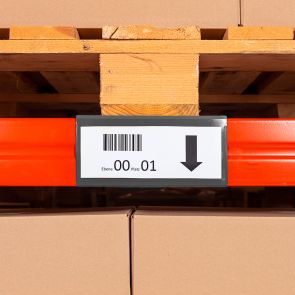Eco-friendly products made from bio-PVC
OUR NEW BIO-PVC FILM
We have news for our environmentally conscious customers: The further development of our ECOLINE products is all about environmental protection. We are pleased to present our new bio-PVC film, which is not only of high quality but also environmentally friendly. This film consists partly of vegetable and environmentally friendly tall pine oil and sets new standards in sustainable production.
The new bio-PVC film represents a significant advance in material technology. The innovative product enables a significant reduction in greenhouse gas emissions during production by an impressive 74 to 92 per cent. This is achieved through the use of tall oil, a vegetable by-product of the pulp industry. Tall oil, which is obtained from the wood of coniferous trees, ensures that no additional trees need to be felled.
HIGH QUALITY MEETS ENVIRONMENTAL AWARENESS
Our bio-PVC film looks and feels no different from conventional PVC film. These properties are particularly important as they ensure that the film can be used in the same applications as conventional PVC without compromising on quality or functionality. The film is versatile and can be used in various industries such as packaging, construction and furniture. This makes it a real all-rounder that protects the environment while meeting the highest quality standards.
The introduction of the bio-PVC film shows that sustainability and innovation can go hand in hand. By integrating tall oil as a raw material component, we have succeeded in significantly reducing the CO2 footprint of our products. This is not only a benefit for the environment, but also an important step towards a sustainable future. Companies that use our bio-PVC film can be sure that they are making a positive contribution to climate protection and at the same time receiving high-quality products.
TALL OIL: A SUSTAINABLE RAW MATERIAL
Tall oil is a pure by-product of the pulp industry, obtained from the resins and acids of pine wood. It is a renewable raw material that is not only sustainable but also efficient. The use of tall oil in our bio-PVC film shows how waste products can be used sensibly and in an environmentally friendly way. This not only reduces the need for fossil raw materials, but also promotes the circular economy by processing industrial by-products in a sensible way.
In addition to the use of renewable raw materials, we rely on environmentally friendly processes in the production of our bio-PVC film. These include the use of renewable energies and the minimization of waste and emissions. Our production facilities are certified to the highest environmental standards and we are constantly working to further optimize our processes. In this way, we ensure that our products are not only environmentally friendly in use, but also in production.
With the introduction of bio-PVC film, we are making a positive contribution to reducing greenhouse gas emissions and protecting the environment. The development of bio-PVC film is just the beginning. We are constantly working to further improve our products and make them even more environmentally friendly. We are convinced that bio-PVC film is an important step towards a sustainable future and look forward to continuing to offer innovative and environmentally friendly products in the future.
QUESTIONS AND ANSWERS
What is tall oil and why is it environmentally friendly?
Tall oil is a vegetable by-product of the pulp industry, obtained from the resins and acids of pine wood. It is sustainable as it is obtained from renewable raw materials and no additional trees have to be felled.
How do bio-PVC films differ from conventional PVC films?
Bio-PVC films do not look or feel any different from conventional PVC films. The main difference lies in the environmental friendliness of bio-PVC film, which is achieved through the use of vegetable tall oil and the reduction of greenhouse gas emissions during production.
How does bio-PVC film contribute to the reduction of greenhouse gases?
The production of bio PVC film reduces greenhouse gas emissions by an impressive 74 to 92 %. This is achieved by using vegetable tall oil instead of fossil raw materials, resulting in a significantly lower environmental impact.










